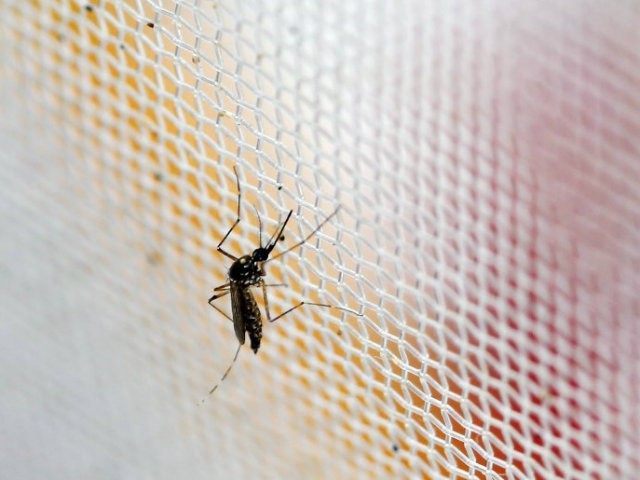Texas public health officials announced Wednesday what they believe to be the state’s first locally transmitted Zika case of 2017.
The Texas Department of State Health Services (DSHS) and Hidalgo County Health and Human Services (HHS) released a statement saying the patient resides in Hidalgo County located in the Rio Grande Valley. “Because the individual has not recently traveled outside the area or had any other risk factors, the infection was probably transmitted by a mosquito bite in south Texas sometime in the last few months,” said health officials.
Additionally, CBS DFW reported that a U.S. Centers for Disease Control and Prevention (CDC) spokesman said if Texas health agencies confirm the case resulted from local mosquito transmission, it would be the first this year in the United States.
DSHS indicated the unidentified patient no longer exhibits Zika symptoms and that laboratory tests show this person not at-risk of spreading the virus to mosquitoes.
Hidalgo County HHS alerted pregnant women in south Texas counties about Zika testing given the virus’ presence along the U.S.-Mexico border.
Zika- @TexasDSHS recommends pregnant women be tested for Zika if you live in South TX Counties the virus has been confirmed along the Border https://t.co/CvkgS6yuoU
— Hidalgo Co. Health (@hidalgohealth) July 26, 2017
While Zika’s symptoms of rash, fever, joint pain and eye redness are generally mild for most people, pregnant women remain vulnerable because of the reported health risks to their unborn babies, most notably microcephaly, where a newborn’s head and brain only partially develops leaving the infant with a small, deformed head.
In the joint statement, officials noted the state performed thousands of Zika tests since April, focusing on pregnant women and people with Zika symptoms in six south Texas counties. Because of this testing, officials identified the affected person in Hidalgo County.
“There is no evidence of ongoing Zika transmission in the state at this time, but public health officials are continuing to conduct human and mosquito surveillance to find any future Zika infections as early as possible,” stated Texas health officials.
In June, Breitbart Texas spoke to Dr. Peter Hotez, dean of the Baylor College of Medicine’s National School of Tropical Medicine. He anticipated that, in Texas, mosquito numbers would be high this year because the state had a warm winter. The tropical medicine expert also cautioned that as Texas began summer, Mexico entered its rainy season.
“We may not be out of the woods and there could be a significant level of Zika transmission in Mexico this summer and that would have implications for south Texas,” he told Breitbart Texas.
As of the week ending July 21, DSHS reported 19 Zika cases this year. Between 2015 and 2016, the state accounted for 323 Zika infections.
Brownsville, a border city in Cameron County, adjacent to Hidalgo County, experienced the state’s first locally-transmitted Zika cases of 2016. In December, one case quickly erupted into six total cases by mid-month and the CDC designated Brownsville a yellow area, warning individuals against travel to the area.
The Aedes aegypti mosquito that carries Zika is native to Texas and also transmits West Nile, dengue, and chikungunya viruses. This mosquito, an aggressive daytime biter, often thrives near populated areas. The virus spreads mainly through the bite of an infected mosquito, but can also spread through sexual contact.
DSHS urges all Texans to protect themselves at home and in areas where Zika spreads by using mosquito repellent, wearing long sleeves and pants outdoors, turning on air conditioning, ensuring window screens are in good shape, and dumping out containers that might hold standing water around the house to thwart mosquito breeding grounds.
Follow Merrill Hope, a member of the original Breitbart Texas team, on Twitter.

COMMENTS
Please let us know if you're having issues with commenting.